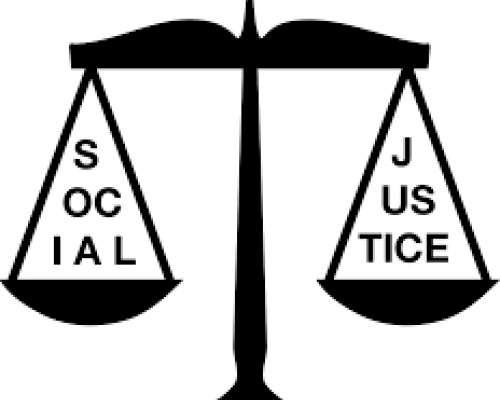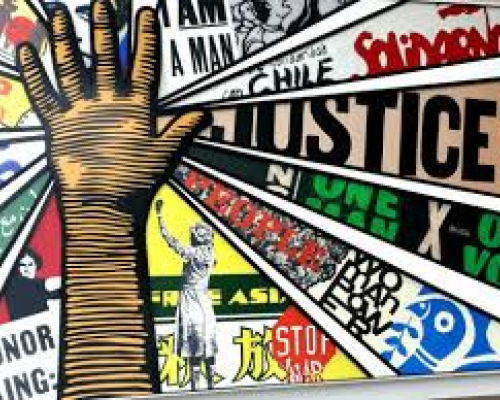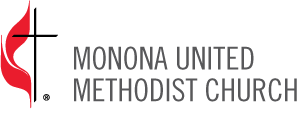Some of the most important teachings of Jesus show us how people can live righteously with one another in God’s kingdom. Do you ever wonder how to respond to social justice issues? And what guidelines you could use to help you focus?
Using the Social Principles of the United Methodist Church as our guide, the Church and Society Work Area at Monona UMC strives to examine contemporary ethical and social justice issues and respond to those issues from the perspective of our Christian faith. We have concentrated the focus of our work in four areas: creation justice, racial justice, immigration justice, and criminal justice reform. We also have explored other social concerns, including voting rights, gun violence, and protecting our water.
The purpose of the Church and Society committee is to advance social justice and to educate and inform our congregation and our community about justice issues in our society through events and activities, such as special worship services, book and film discussions, and issues forums. Our goals, stemming from our Wesleyan tradition, include consciousness-raising, education, and political advocacy.


As our social justice work moves forward in 2024, we are focusing on two themes in particular this year: Care of Creation and First Nation Peoples, especially in Madison and Monona.
We are coordinating two events in April that encompass these themes:
• At our Just Friday collaboration with St. Stephens Lutheran Church on Friday, April 5, we will host a discussion at our church of a TED talk by Mark Charles, a Navajo teacher, author and activist, who will give us insight into the meaning of the first three words in the Preamble to our Constitution, which are “We the People.”
• On Sunday, April 21, we will offer a special worship service that will incorporate these two themes together as we recognize both Earth Day and Native American Sunday, which is celebrated annually by the United Methodist Church. The Whitehorse family, who are members of the Ho-Chunk nation and of our congregation, will present the message that morning.
Over the summer and into the fall, we plan to share additional videos, have book discussions, and perhaps enjoy a trip to view nearby mounds and historical sites of the Ho Chunk people as we continue examining the First Nation Peoples theme in greater depth. We hope you will look forward to the various opportunities we will have as a congregation to increase our understanding of this critical issue.
In early October, we will shift from our thematic focus in anticipation of the upcoming election and once again offer a presentation about the importance of voting, using the values of our United Methodist faith to guide us.
Please join us in 2024 for an eye-opening uncovering of our history and heritage as Christians and as Wisconsinites who care for all of God’s creation.
Gerrymandering
The Wisconsin Voter Engagement Campaign recently sponsored a webinar on partisan gerrymandering – what it is, how it works, why it dilutes your vote, and what you can do to take action.
You can watch the webinar here: https://www.youtube.com/watch?v=Wr8Pi0IiZQ&t=2593s.
There are currently two bills before our state legislature on gerrymandering.
1. Assembly Bill 395/Senate Bill 389 sets out standards and procedures for redistricting that are non-partisan, that protect voters from discriminatory redistricting, and that ensure an open and impartial process. The Senate Committee on Government Operations, Legal Review
and Consumer Protection, and the Assembly Committee on Campaigns and Elections have not yet scheduled a public hearing on these bipartisan bills.
2. Assembly Bill 369/Senate Bill 385 would delay redistricting until 2023, thereby keeping in place our current map through the 2022 midterm and Gubernatorial elections. This bill has already passed the Assembly and is likely to come to the floor of the Senate this week.
The Bail System
The primary purpose of bail is to allow the arrested person to remain free until convicted of a crime and at the same time ensure his or her return to court.In Wisconsin bail consists of two parts: the amount of money that needs to be posted and the rules that need to be followed while out on bail. The court commissioner sets an amount of bail and conditions of bail known as bond conditions.
The amount of bail for a non-violent crime is normally $500 per charge. The amount of bail can be either cash or signature bond. When a person signs a signature bond it states that he is promising to pay the $500 if he or she violates the conditions of bail. If bail is set at $500 cash the arrested person, family, or friend must post $500 in cash to get the person out of jail. The judge can also set the bail of $500 per charge. For instance, if a person is arrested for drunken driving and is resisting arrest he would be charged for the OWI and also for an obstruction charge which would put the bail at $1000. Any money posted for bail will be returned to the person who posted it in about 2 weeks after the case is over. However, the court will likely take out the court costs.
Bail reform is a part of a larger discussion on criminal justice reform taking place in Wisconsin and nationwide. There are growing calls to end our unjust cash bail system release program. We need legislative efforts that provide judges with the most robust, equitable, and evidence based approach to systemic pretrial reform at the local level.
Marilyn Hearden, Church & Society

